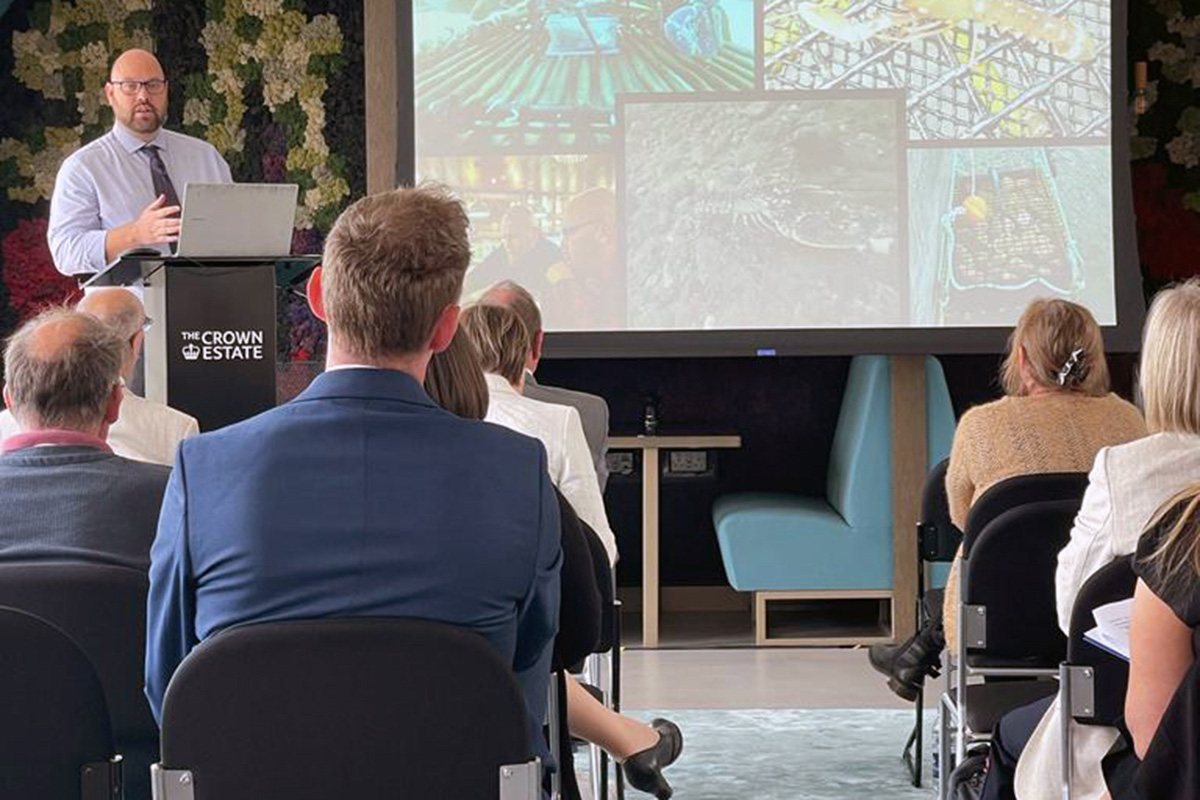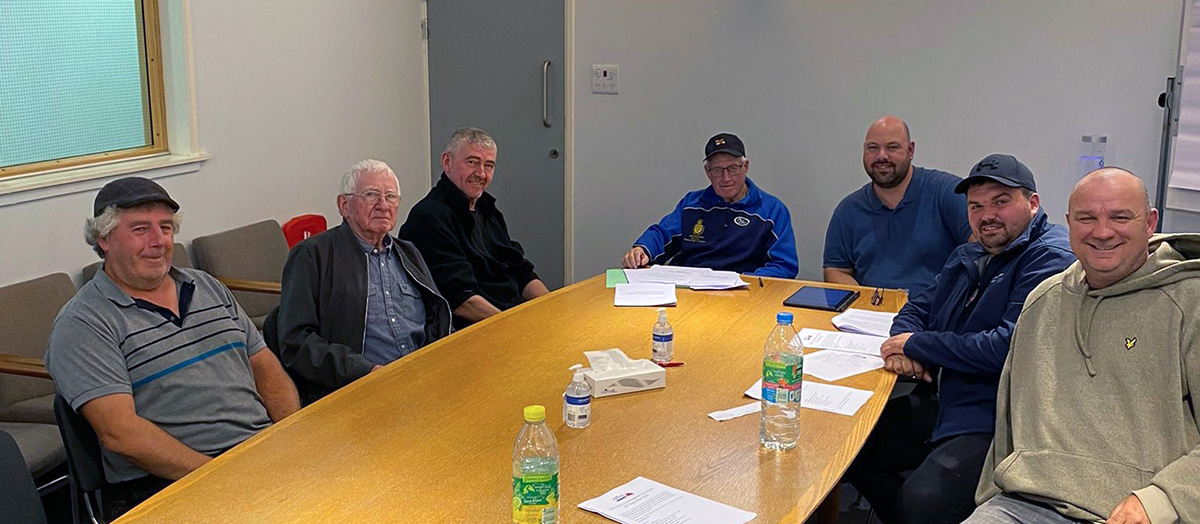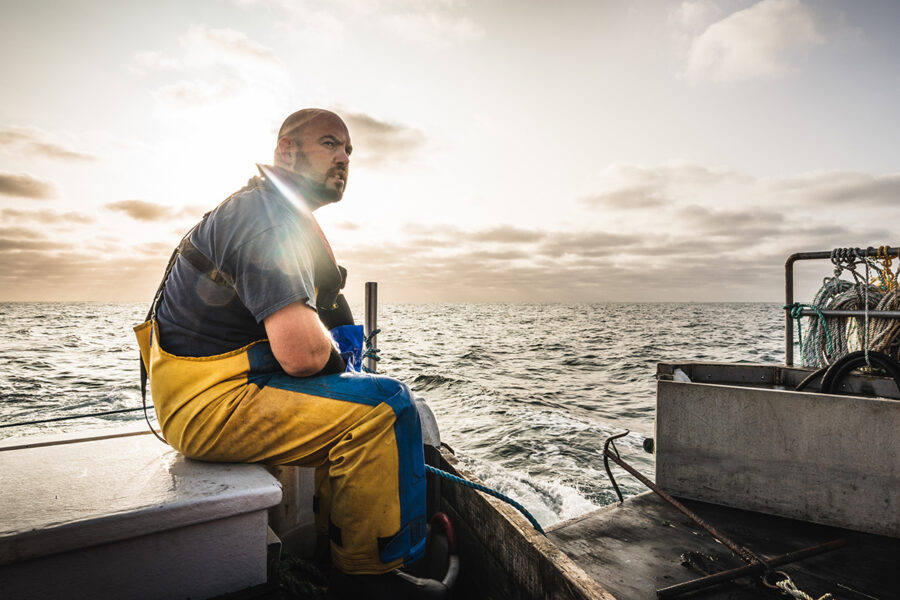“It’s been a bit of a whirlwind, really,” Mike Roach told Fishing News at the end of his first six months as deputy chief executive of the National Federation of Fishermen’s Organisations (NFFO). “It’s enough of a challenge to learn a new role and the duties and responsibilities of the job, and learn about other sectors we represent – but we’ve also had significant changes in fisheries reform going on over the summer.
“To put that into context, alongside the day-to-day representation, what we do at the NFFO is to consult on any marine licences or issues that may impact our members – and since I started in March, we’ve responded to 47 different consultations.”
Prior to joining the NFFO, Mike spent almost a decade working in fisheries science for the Holderness Fishing Industry Group (HFIG), a not-for-profit organisation representing the interest of fishermen and the fishery along the Holderness coast.
The decision to leave HFIG wasn’t an easy one. “It was a tough decision because I thoroughly enjoyed the work I did at HFIG, but this job gave me an opportunity to get involved in more national-level issues and areas of interest.
“I’ve been crustacea sector- focused for the last 10 years. There are so many other things about fisheries that I’ve not learnt about or been exposed to. This job gives me the opportunity to do that.”
It’s an opportunity Mike’s relishing, and this summer’s many consultations have presented the chance to learn about a diverse range of areas. “We’ve had seaweed farms, interconnector cabling, aggregate extraction, dredging, kittiwake compensation, wild oyster restoration, a mussel farm – plus eight wind farm impact assessment responses that we’ve critiqued and responded to.
“Because a lot of these applications are from areas I’m not familiar with, I’ll contact our members through our regional chairs and get local information as to whether it’s going to involve them, and then feed that into our response.”

Mike presenting at the SAGB conference earlier this year. “It was very much jumping in at the deep end when I started. It’s the staff that we have here at the NFFO who have made that transition easy. They’ve been essential in helping me find my feet. They often don’t get any shout-outs – so this gives me the opportunity to give our full support staff a shout-out!”
With such a wide-ranging workload, Mike’s working day can be extremely varied. “There’s a lof of work that the role requires. I have to make sure that anything that’s happening in the marine environment is reviewed, so we can put our concerns forward.”
The NFFO also feeds into many areas of government policy-making, including around marine spatial planning and prioritisation, giving Mike the chance to highlight issues on a national level.
“I was in London a few weeks ago talking to the Seabed User and Development Group (SUDG) about fisheries, and how we work moving forward with marine spatial prioritisation.
“In the past it’s been very difficult for fisheries to get a seat at the table. The NFFO has worked very hard, both before my time and now, to get a seat, and have discussions with Defra and forums such as the SUDG to ensure that fisheries’ voices are heard.”
For Mike, that involvement extends into representation in other forums, including sitting on the Fisheries Liaison with Offshore Wind and Wet Renewables Group, and chairing the Shellfish Industry Advisory Group and the Crustacean Committee for the Shellfish Association of Great Britain.
“The shellfish sector is an area the NFFO thinks is really important – it’s raising shellfish on the agenda because as we’ve seen more domestic policy formed, we’re seeing more focus on the shellfish sector than in the pre-Brexit era.”

Mike Roach, third from the right, at an NFFO West Coast Regional Committee meeting last month. Mike has experienced a whirlwind first six months in the role – including helping to form the federation’s response to 47 different consultations. “The reality is that the workload is massive, and every day is something different. It’s jumping from one thing to the other, to the other, to the other – and then back to that first thing in a week’s time because it comes rolling round again – but that’s what makes it interesting.”
One aspect that no longer features as part of Mike’s varied workload is going to sea. “I’m not doing what I did at HFIG previously – where if I got fed up with the office I could go to sea, or when I got tired of the sea I could go to the office. This is different, but it’s still interesting. You get your kicks a different way.
“Being involved in high- level discussions and making sure fisheries are represented at the highest level is fantastic. Jumping on a train to London and having a full day’s meeting around spatial planning may sound dull – but you’re meeting people and finding common ground, and new ways of working.
“Even with industries with whom we’ve been sat on the opposite side of the table for a long time, we are starting to move towards a common goal of trying to work together, to minimise impacts rather than the opposite where nothing gets done.”
With the latest round of consultations complete, Mike can move on to another element of his role – meeting more of the NFFO’s members.
“We need to ensure we’re representing everyone’s voice, and that everybody in our membership gets heard. I’m a firm believer that the best way of representing people is to develop relationships – so you know what you’re saying has come from knowing somebody, as opposed to sending an email. I like to talk to people. I was in Whitby, Scarborough and Whitehaven all in the same week recently talking to fishermen.”
Whether in the office, or at the quayside, Mike says his priority is to represent fishermen to the best of his ability – to the benefit of the wider industry.
“Fisheries organisations are doing the hard work behind the scenes. That’s often overlooked. It can be difficult to understand what fisheries organisations do – but we do benefit the wider industry whilst trying to benefit our members – and that’s the key thing.”
This story was taken from the latest issue of Fishing News. For more up-to-date and in-depth reports on the UK and Irish commercial fishing sector, subscribe to Fishing News here or buy the latest single issue for just £3.30 here.
Sign up to Fishing News’ FREE e-newsletter here.








